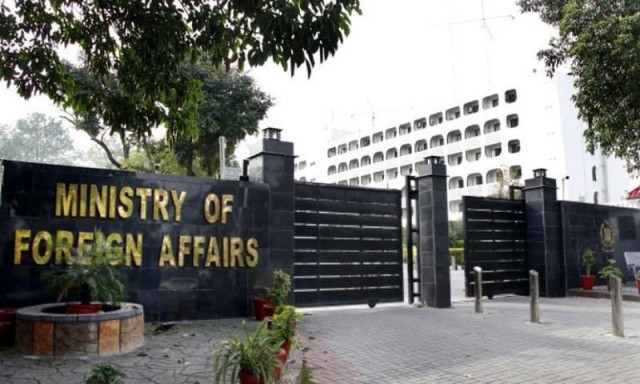FO aims to allay concerns over the defense pact.

The historic strategic mutual defense agreement (SMDA) between Saudi Arabia and Pakistan has been explained by Pakistan to be “purely defensive in nature” and not aimed at any third party.
At a weekly news briefing on Friday, Foreign Office spokeswoman Shafqat Ali Khan stated that the agreement would not only improve bilateral defense cooperation but also support regional peace, security, and stability.
According to him, the two countries have “a long and distinguished history of brotherhood and cooperation,” and their bilateral ties are “unique, enduring, and multifaceted.” He went on to say that the two nations’ leaders have a same goal of advancing their relationship.
One of the main tenets of Pakistan-Saudi Arabia’s comprehensive bilateral relations since the 1960s has been defense cooperation. In response to inquiries, Khan stated, “This strong and long-standing defense partnership is formalized by the strategic mutual defense agreement.”
The representative went on to say that the two countries’ friendship “lives in the hearts of the people”. He went on to say that Pakistanis admire the royal family for being the guardians of the sacred sites and have particular feelings for Saudi Arabia because it is the home of Makkah and Medina.
He said that “any misplaced attribution or speculation of hypothetical scenarios is unwarranted” and that the formal statement jointly released by the two nations is self-explanatory.
On Wednesday, Riyadh and Islamabad signed the historic SMDA, stating that any attack on one would be viewed as a strike against both. During a daylong visit to the Saudi capital, Prime Minister Shehbaz Sharif and Crown Prince Mohammed Bin Salman inked the agreement.
Although Saudi Arabia and Pakistan have traditionally collaborated strategically and militarily, the SMDA is viewed as important in light of recent events, such as Israeli strikes on Qatar.
However, a Saudi official told Reuters that the deal reflected the long-standing strategic collaboration between Islamabad and Riyadh and was not intended to address any particular incident.
The deal is a major turning point in the two countries’ long-standing tight defense and security cooperation. The oil-rich kingdom has been home to Pakistani military trainers for decades, and during economic downturns, Riyadh has generously provided Islamabad with financial help.
The signing of the agreement and the prime minister’s visit highlight Islamabad’s attempts to strengthen political and security ties with the monarchy, even as both nations continue to look into deeper economic collaboration.
In response to another query, the spokesperson stated that the United States and Afghanistan were at odds over the Bagram airbase. He was referring to President Donald Trump’s announcement on Thursday that he would regain command of the Bagram military installation.